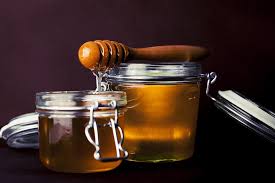Manuka honey may kill bacteria by destroying key bacterial proteins. Dr Rowena Jenkins and colleagues from the University of Wales Institute – Cardiff investigated the mechanisms of manuka honey action and found that its anti-bacterial properties were not due solely to the sugars present in the honey.
The work was presented this week (7-10 September), at the Society for General Microbiology’s meeting at Heriot-Watt University, Edinburgh.
Meticillin resistant Staphylococcus aureus (MRSA) was grown in the laboratory and treated with and without manuka honey for four hours. The experiment was repeated with sugar syrup to determine if the effects seen were due to sugar content in honey alone. The bacterial cells were then broken and the proteins isolated and separated on a system that displayed each protein as an individual spot.
Many fewer proteins were seen from the manuka honey-treated MRSA cells and one particular protein, FabI, seemed to be completely missing. FabI is a protein that is needed for fatty acid biosynthesis. This essential process supplies the bacteria with precursors for important cellular components such as lipopolysaccarides and its cell wall. The absence of these proteins in honey-treated cells could help explain the mode of action of manuka honey in killing MRSA.
“Manuka and other honeys have been known to have wound healing and anti-bacterial properties for some time,” said Dr Jenkins, “But the way in which they act is still not known. If we can discover exactly how manuka honey inhibits MRSA it could be used more frequently as a first-line treatment for infections with bacteria that are resistant to many currently available antibiotics.”
Original Story: ScienceDaily
Story Source:The above post is reprinted from materials provided by Society for General Microbiology.
Note: Materials may be edited for content and length.


Recent Comments